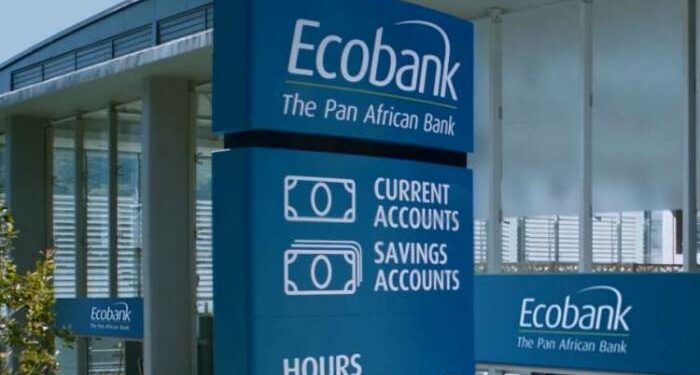Ecobank Obtains Bondholders Approval for Key Amendments to Boost Capital Adequacy
The approval was announced after a meeting held on September 16, 2024, during which noteholders passed an extraordinary resolution to temporarily suspend capital adequacy requirements, providing Ecobank with much-needed financial flexibility.
- Advertisement -
Ecobank Nigeria has successfully secured the approval of its noteholders to amend key provisions tied to its $300 million Senior Note Participation Notes due in 2026, following the severe impact of the Naira’s devaluation on its capital adequacy ratio.
The approval was announced after a meeting held on September 16, 2024, during which noteholders passed an extraordinary resolution to temporarily suspend capital adequacy requirements, providing Ecobank with much-needed financial flexibility.
- Advertisement -
The amendments are aimed at helping the bank recover from the substantial impact of the Naira’s depreciation, which has seen the currency fall from N951.79 to the U.S. dollar at the start of 2024 to N1,628.47 by the end of July 2024.
- Advertisement -
Noteholders approve suspension of Capital Adequacy Requirement
According to the statement issued on September 17, 2024, noteholders of Ecobank Nigeria’s $300 million Senior Note Participation Notes unanimously approved the proposed amendments.
- The resolution allows the bank to temporarily suspend its obligation to meet capital adequacy requirements under condition 10(c) of the Senior Notes until September 30, 2025.
- This amendment is crucial for the bank, as the significant devaluation of the Naira had inflated its Risk-Weighted Assets (RWA)—most of which are denominated in U.S. dollars—while the bank’s equity remains denominated in Naira.
- This imbalance had led to Ecobank’s capital adequacy ratio falling below the 10% minimum regulatory threshold by June 30, 2024.
- With the amendment, the bank now has time to implement a capital remediation plan approved by the Central Bank of Nigeria (CBN), designed to restore its capital adequacy and stabilize its financial standing.
As part of the resolution, noteholders also granted a waiver for any potential or actual default events that may have occurred as a result of the bank’s failure to meet its capital adequacy requirements prior to the approval.
This ensures that Ecobank is shielded from legal or financial repercussions related to breaches of its covenants during this period of financial distress.
Consent fees to be paid
In return for their approval, noteholders who voted in favor of the resolution will receive consent fees.
- Advertisement -
- Those who submitted their voting instructions before the early consent deadline of September 6, 2024, will receive $1.25 per $1,000 of the principal amount of the notes.
- Those who voted by the final voting deadline of September 11, 2024, will receive $0.50 per $1,000 of the principal amount.
The settlement of these fees is expected to occur on or around September 19, 2024, according to the terms outlined in the Consent Solicitation Memorandum.
Ecobank’s Capital Remediation efforts
Ecobank Nigeria’s capital remediation plan, which has been approved by the CBN, involves a series of measures aimed at restoring the bank’s financial health and meeting the new regulatory capital requirements by April 2026. Key steps include:
- Ecobank’s parent company, Ecobank Transnational Incorporated (ETI), has committed to injecting $10 million (approximately N16 billion) into the bank by September 30, 2024, to address the shortfall in its common equity.
- The bank plans to issue $200 million in AT-1 Bonds in four tranches, subject to market conditions, to strengthen its Tier-1 Capital and improve its capital adequacy ratio.
- Ecobank aims to reduce up to $300 million in its risk-weighted assets through loan sales and borrower prepayments. Additionally, the bank intends to redeem its $200 million promissory notes maturing in 2027, which will further reduce its RWAs.
- The bank also plans to convert $200 million of dollar-denominated loans into Naira, depending on favorable market conditions, to mitigate the risks of further currency devaluation.
These measures are expected to elevate the bank’s capital adequacy ratio to 20.36% on a pro forma basis by June 30, 2024, significantly above the minimum regulatory requirement.
Market and Sector-Wide Implications
The approval of the resolution by noteholders comes at a critical time for Nigeria’s banking sector, which has been grappling with the broader macroeconomic fallout of the Naira’s sharp depreciation.
- The Central Bank of Nigeria has mandated that all banks increase their core capital levels by April 2026 to ensure financial stability across the sector.
- As one of Nigeria’s largest financial institutions, Ecobank’s success in stabilizing its capital adequacy is crucial not just for the bank but for the entire banking industry.
- Analysts suggest that other banks may follow similar paths, as they too face the challenge of managing currency risk and capital adequacy in an increasingly volatile economic environment.
Source:norvanreports.com
- Advertisement -


